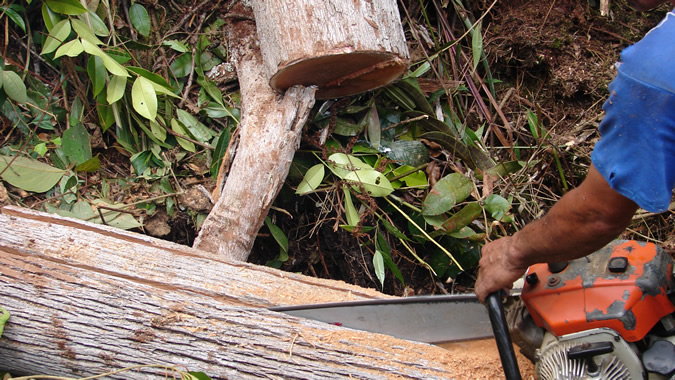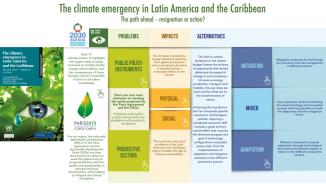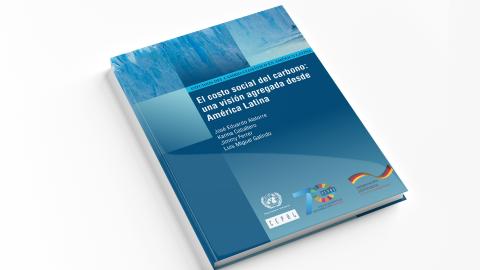infographic
The carbon footprint is not only a possible threat to the international trade of Latin America and the Caribbean. It can also be a source of competitive opportunities. This is according to the preliminary results of the carbon footprint and exports project that the ECLAC Division of International Trade and Integration has been carrying out since 2012 with the support of the United Nations Development Account.
For business owners in countries that are directly or indirectly involved in the project (Colombia, Ecuador, Nicaragua, Dominican Republic, Argentina, Peru and Uruguay), what is known as the "positive agenda" of climate change aimed at business sustainability is just as important as the possibility of tackling any environmental requirements and barriers in the markets of industrialized countries.
Worldwide, the use of fossil fuels is the main source of greenhouse gas emissions. In this region, on the other hand, the top causes are land use changes (deforestation), which represents 47% of the total, followed by the energy sector (25%) and agriculture (20%).
This emissions pattern is a potential risk for the agro-export sector, as it accounts for a significant share of total emissions insofar as this includes emissions for land use change and agriculture, as well as energy, transport and industry.
The aims of the ECLAC project are precisely to improve the capacity of Latin American and Caribbean food-export sectors to comply with the procedures and rules established by developed countries, particularly around carbon emissions, by maintaining competitiveness in these markets and strengthening government and food exporter capacity to adapt to the demands of climate change.
The initiative was initially developed in four countries (Colombia, Ecuador, Nicaragua and the Dominican Republic), with trade promotion agencies as the national focal points. In the light of the demand from other countries, the project was expanded to Argentina, Peru and Uruguay. In the near future, the project may be implemented in Brazil and Honduras.
Research shows that, in most cases, taking the carbon footprint seriously improves the sustainability of the business by reducing or delaying the effects of climate change.
This also makes it possible to detect and correct inefficiencies in production processes, increase energy efficiency and improve waste management, water management and traceability. In addition, this achieves a competitive differentiation in the most demanding markets, which increases the unit price of the export. All of this improves the possibilities for participating in more demanding value chains or rising up the link hierarchy of such chains to improve competitiveness.
Having said that, the project has shown ECLAC that there is significant backwardness in terms of regional public policies. Weak ministries or public agencies, symbolic budgets and the lack of substantive allocations are typical in many of the region's countries. There are some good experiences in many countries (basically in the business world), and these require a more fruitful public-private dialogue.



